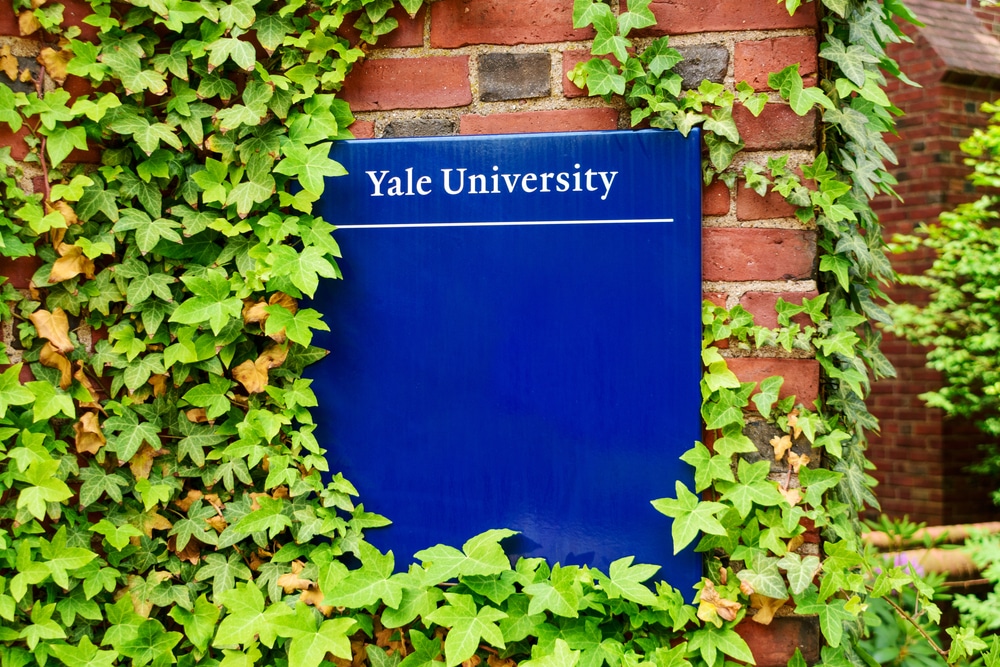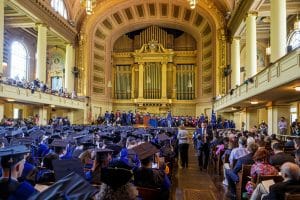Exploring Yale’s Academic Calendar
Understanding the academic calendar can be invaluable as students prepare for a new academic year at Yale. This comprehensive guide serves as an in-depth look into the intricacies of Yale University’s academic calendar, breaking down each semester, outlining special events and holidays, diving into exam schedules and course registration, and more.
Understanding Yale’s Academic Calendar
The Importance of the Academic Calendar
The academic calendar is a key document for learners in any educational institution; it presents a well-structured guide to the university’s academic year. It provides dates, significant deadlines, and the scheduling of various academic activities.
At Yale University, the academic calendar is meticulously planned to ensure a smooth academic journey for the students. It outlines key periods, such as registration times, midterms, finals, holidays, and more. Understanding these dates can ensure learners manage their time effectively, meet deadlines, and maximize their Yale experience.
Yale’s academic calendar serves as a compass when managing academic responsibilities and guiding students through the intricate web of courses, exams, and extracurricular activities. It provides a roadmap for success, offering a clear overview of the entire academic year.
One of the most significant aspects of the academic calendar is its ability to help students plan their schedules. With the carefully outlined dates, learners can strategize their study sessions, allocate time for research, and even make room for personal hobbies and interests. This level of organization allows students to strike a balance between their academic work and personal life, ensuring a well-rounded and fulfilling experience at Yale.
Key Dates in Yale’s Academic Calendar
Yale’s Academic Calendar is divided intricately into primary categories that span the whole year. The calendar year starts with the fall semester, followed by the spring semester. Some key dates to keep in mind include the start and end of each term, midterm and final exam periods, registration deadlines, and designated holidays.
These key dates are significant to students’ academic progression, as they provide a framework by which learners can plan their studies and personal schedules. Knowing these dates enables them to balance academic work, extracurricular activities, and personal time.
Midterm and final exam periods are also important milestones in the academic calendar. They serve as checkpoints for students to assess their understanding of the course material and demonstrate their knowledge. These exam periods can be challenging but also present an opportunity for growth and self-reflection.
Registration deadlines play a vital role in the academic calendar as well. They ensure students have ample time to select their courses for the upcoming term. By adhering to these deadlines, learners can secure their spot in popular classes and create a well-rounded schedule that aligns with their academic goals.
In addition to academic events, Yale’s academic calendar also designates holidays. These breaks provide students with much-needed rest and rejuvenation, allowing them to recharge before diving back into their studies. Whether it’s Thanksgiving, winter break, or spring recess, these holidays offer a chance for students to spend time with loved ones, explore new interests, or relax and unwind.
Overall, Yale’s academic calendar is a comprehensive tool that empowers students to navigate their academic journey successfully. By understanding and utilizing the key dates, students can optimize their time management skills, stay on top of their coursework, and make the most of their Yale experience.
Breaking Down the Semesters
Fall Semester Overview
Typically, the fall semester at Yale University begins in late August and runs through mid-December. This period includes orientation week, course registration, midterm exams and ends with the final exam period before winter break.
During orientation week, new students are introduced to the campus, faculty, and resources available. They attend informational sessions, meet their advisors, and participate in various activities to help them acclimate to college life.
Course registration is an important process that allows students to select the classes they will take during the semester. It involves reviewing course catalogs, meeting with academic advisors, and creating a schedule that aligns with their academic goals and interests.
Midterm exams, which usually take place around the halfway point of the semester, assess students’ understanding of the course material covered up to that point. These exams provide an opportunity for students to gauge their progress and identify areas that may require additional attention.
The final exam period, which occurs before winter break, is a culmination of students’ learning throughout the semester. It tests their knowledge and comprehension of the entire course material. It is crucial for students to allocate sufficient time for studying and preparation during this period.
Students are encouraged to familiarize themselves with the specific start and end dates of classes and when midterm break will take place. College life can be busy, and having a clear understanding of these dates can help students manage their time effectively. It allows them to plan their extracurricular activities, part-time jobs, and personal commitments without conflicting with their academic responsibilities.
Spring Semester Overview
The spring semester usually commences in early January and concludes in mid-May. Similar to the fall semester, the spring semester includes the start and end of classes, midterm and final exams, and spring recess.
At the beginning of the spring semester, students return from winter break and resume their academic pursuits. It is a time of renewed energy and enthusiasm as they embark on new courses and continue their academic journey.
Midterm exams in the spring semester serve a similar purpose as those in the fall semester. They allow students to assess their understanding of the course material and make any necessary adjustments to their study strategies.
The final exam period in the spring semester is a critical time for students to consolidate their knowledge and demonstrate their mastery of the course material. It requires careful planning and effective time management to ensure adequate preparation for these exams.
Spring semester is also when many major university-wide events take place, adding to the vibrant campus life. The spring football game, for example, brings together students, faculty, and alumni to cheer on the university’s team. It is an exciting event that fosters school spirit and camaraderie.
In addition to sports events, the spring semester is known for its annual concerts and performances. Renowned artists and musicians often grace the campus, providing students with opportunities to enjoy live music and cultural experiences.
Being cognizant of these dates and events allows students to plan their academic and extracurricular activities accordingly. They can make informed decisions about their course load, involvement in campus organizations, and attendance at various events. This balance between academics and extracurricular pursuits is integral to the holistic college experience.
Special Events and Holidays
Recognized Holidays at Yale
Yale University honors various national and religious holidays throughout the academic year. These include, but are not limited to, Labor Day, Thanksgiving Break, Martin Luther King Jr. Day, and Memorial Day. Additionally, Yale has a week-long spring recess in March.
These holidays provide students with valuable opportunities to recharge, carry out non-academic activities, visit family, or even venture off-campus for a brief vacation. Being aware of these scheduled days off can aid in personal and academic planning.
During Labor Day, students often take advantage of the long weekend to explore the vibrant city of New Haven. From visiting local museums and art galleries to enjoying the scenic beauty of the Yale campus, there are plenty of activities to engage in.
Thanksgiving Break is when students gather with friends and classmates to celebrate the holiday. Many students stay on campus and participate in Thanksgiving dinners organized by various student groups. These dinners provide a sense of community and allow students to experience the warmth and joy of the holiday away from home.
Martin Luther King Jr. Day holds special significance at Yale. The university organizes events and discussions to honor Dr. King’s legacy and promote dialogue on social justice and equality. Students have the opportunity to attend lectures, participate in community service projects, and engage in meaningful conversations about civil rights.
Memorial Day marks the unofficial start of summer, and many students take advantage of the long weekend to relax and unwind. Some students head to nearby beaches, while others use this time to catch up on their studies or engage in outdoor activities like hiking and biking.
The week-long spring recess in March is eagerly anticipated by students. It provides a much-needed break from the demands of academic life and allows students to recharge and rejuvenate. Some students travel during this time, exploring new cities or countries, while others prefer to stay on campus and participate in various events and activities organized by student clubs and organizations.
Annual Special Events
Yale University is renowned for its vibrant community and rich traditions. There are several annual events that students look forward to each year.
One of the most highly anticipated events is the Fall Opening Assembly. This event marks the beginning of the academic year and serves as a formal welcome to new students. It features speeches from university leaders and student group performances and showcases the Yale community’s diverse talents and achievements.
The Game, a famous football match-up against Harvard University, is another event that generates excitement among students. This historic rivalry brings together students, alumni, and fans from both universities for a day of spirited competition and camaraderie. The atmosphere is electric, with cheering crowds, halftime shows, and a sense of school pride that permeates the entire campus.
Spring Fling is a beloved tradition at Yale. It is a day-long celebration of music, food, and fun. The campus comes alive with live performances by popular bands and artists, food trucks offering a variety of cuisines, and interactive activities for students to enjoy. Spring Fling is when students can let loose and create lasting memories with their friends.
Of course, one of the most significant events at Yale is the Commencement Ceremonies. This is a time of celebration and reflection as graduates prepare to embark on the next chapter of their lives. The ceremonies are steeped in tradition, with distinguished speakers, award presentations, and the conferral of degrees. Family and friends gather to witness this milestone and share in the joy and pride of the graduating class.
These special events and holidays contribute to the vibrant and dynamic atmosphere at Yale University. They provide students with opportunities for personal growth, community engagement, and the creation of lifelong memories. Whether it is celebrating holidays with loved ones or participating in cherished traditions, these events play a significant role in shaping the Yale experience.
Exam Schedules and Deadlines
Midterm Examination Period
The Yale academic calendar sets aside specific periods for midterm examinations each semester. These are dedicated weeks during which no university events are scheduled, and students are expected to fully focus on preparing for their midterms.
Knowing these dates can help students plan their studies effectively, utilizing their time wisely to prepare for each exam meticulously.
Final Examination Period
Much like midterms, finals are set for specific periods towards the end of each semester. This is when students review the entirety of the semester’s coursework and prove their understanding of the subjects.
It is essential to remember the dates for final exams – not only for study planning but also for booking travel if students intend to leave campus immediately after final exams.
Final Thoughts
In conclusion, Yale’s academic calendar serves as an essential guide for navigating the academic year at Yale University, and understanding it can greatly enrich a student’s experience in this prestigious institution.
Overall, Yale’s academic calendar supports its commitment to academic excellence and allows students to engage deeply in their studies while fostering personal growth and development.
If you need help putting the finishing touches on your college applications, at AdmissionSight, we have over 10 years of experience guiding students through the competitive admissions process.
AdmissionSight can help you put your best foot forward when applying to college this fall. Contact us today for more information on our services.








































